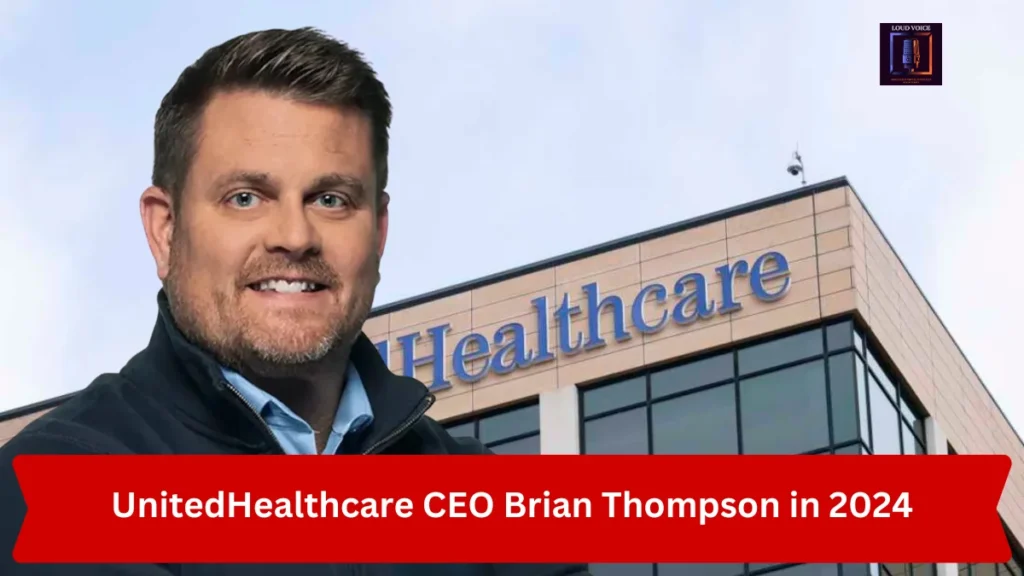Key Takeaways
- UnitedHealth Group CEO Andrew Witty steps down immediately, citing personal reasons, prompting major leadership changes at the health insurance giant.
- Stephen Hemsley, former CEO and current board chairman, returns to lead UnitedHealth Group in a transitional role.
- Witty’s resignation follows a tumultuous period, including the tragic death of UnitedHealthcare CEO Brian Thompson and public scrutiny of the U.S. health system.
- Because of the unexpectedly high expenses of Medicare Advantage, UnitedHealth Group has halted its 2025 financial projection.
- The company’s stock experienced a sharp 11% premarket decline, reflecting investor uncertainty during the leadership transition.
Andrew Witty Resigns as CEO of UnitedHealth Group in Unexpected Leadership Change
In a surprising move that signals deeper turbulence within the health insurance industry, UnitedHealth Group CEO Andrew Witty steps down effective immediately, the company confirmed Tuesday. The decision, attributed to “personal reasons,” brings Witty’s four-year tenure at the helm of the nation’s largest health insurer to a sudden end.
Witty’s departure comes at a time of heightened scrutiny and operational challenges for the company. He will remain in a limited capacity as senior adviser to his successor — a familiar face to shareholders and stakeholders alike.
Stephen Hemsley Returns to Lead Amid Crisis
Taking the reins once again is Stephen Hemsley, UnitedHealth Group’s current board chairman and former CEO, who served in the top role from 2006 to 2017. Known for steering the company through expansive growth and navigating policy shifts during the Affordable Care Act era, Hemsley’s return is intended to restore confidence and stability.
In a company statement, Hemsley expressed appreciation for Andrew Witty’s leadership at UnitedHealth Group, highlighting his guidance during some of the most difficult periods the company had encountered. He noted that the organization had deeply valued Witty’s compassionate approach and extended well wishes to him and his family. But this transition isn’t just about gratitude—it’s a strategic pivot.
A CEO’s Tenure Marked by Crisis and Reform

Witty’s leadership tenure has been defined by both disruption and introspection. Most notably, he guided UnitedHealth through the shocking murder of UnitedHealthcare CEO Brian Thompson in 2024. Thompson, who headed the company’s health insurance division, was fatally shot outside a hotel in New York City—an event that sent shockwaves throughout the healthcare industry.
Following the incident, Witty published a reflective op-ed in The New York Times where he admitted that the American healthcare system had significant shortcomings. He pointed out that insurance coverage decisions were often misunderstood and lacked clarity, emphasizing the need for greater transparency.
It was a rare moment of vulnerability from a top healthcare executive—and a call for more transparency and accountability within the industry.
Public Pressure and Mounting Financial Strain
Despite these efforts, UnitedHealth has faced growing criticism over its role in coverage denials and care rationing. Public trust has wavered, especially as broader concerns about the cost of care and administrative barriers have intensified.
This leadership transition also coincides with disappointing financial news. On Tuesday, UnitedHealth announced it would suspend its 2025 financial outlook, citing higher-than-expected costs associated with its Medicare Advantage plans—a crucial pillar of its business model.
These costs have been eroding the company’s profit margins, forcing executives to recalibrate growth expectations. In a recent earnings call, Witty didn’t mince words, labeling the company’s financial performance as “unusual and unacceptable.”
Wall Street Reacts: Stocks Plunge
Investors reacted swiftly to the leadership change and financial uncertainty. UnitedHealth shares tumbled nearly 11% in premarket trading on Tuesday, following a staggering 20% drop just last month—marking the company’s worst single-day stock performance in nearly three decades.
Market analysts attribute the decline not only to rising healthcare costs but also to broader investor skepticism about the long-term viability of the Medicare Advantage model, particularly under regulatory and demographic pressures.
What’s Next for UnitedHealth Group?
Looking ahead, UnitedHealth plans to focus on recovery and realignment. Hemsley’s return is expected to provide operational continuity as the company restructures and regains strategic footing.
There are also internal talks of investing more heavily in digital health, data-driven care coordination, and patient-centric service models to adapt to evolving consumer expectations.
Industry experts suggest that UnitedHealth’s ability to weather this storm will depend on its capacity to rebuild trust—not only with investors, but with patients and providers.
Leadership Shakeups and Industry Implications
The leadership shakeup at UnitedHealth Group doesn’t exist in a vacuum. It highlights a larger pattern of instability in the US healthcare industry, as legacy businesses are being forced to change or risk falling behind due to a combination of public discontent, governmental changes, and financial constraints.
As more Americans demand greater transparency and affordability, health insurers must balance profitability with purpose. Witty’s departure may mark the end of one chapter, but it also opens the door to a new era of accountability and innovation in the industry.
Conclusion
Andrew Witty’s sudden resignation from UnitedHealth Group signals more than a personal transition—it reflects a moment of reckoning for a company grappling with internal strife and external criticism. As Stephen Hemsley steps back in, the path forward for UnitedHealth hinges on whether it can regain trust, reimagine its service model, and respond to mounting calls for transparency in American healthcare. This pivotal moment could define not only UnitedHealth’s future but also reshape the broader conversation about how care is accessed and delivered in the U.S. .


